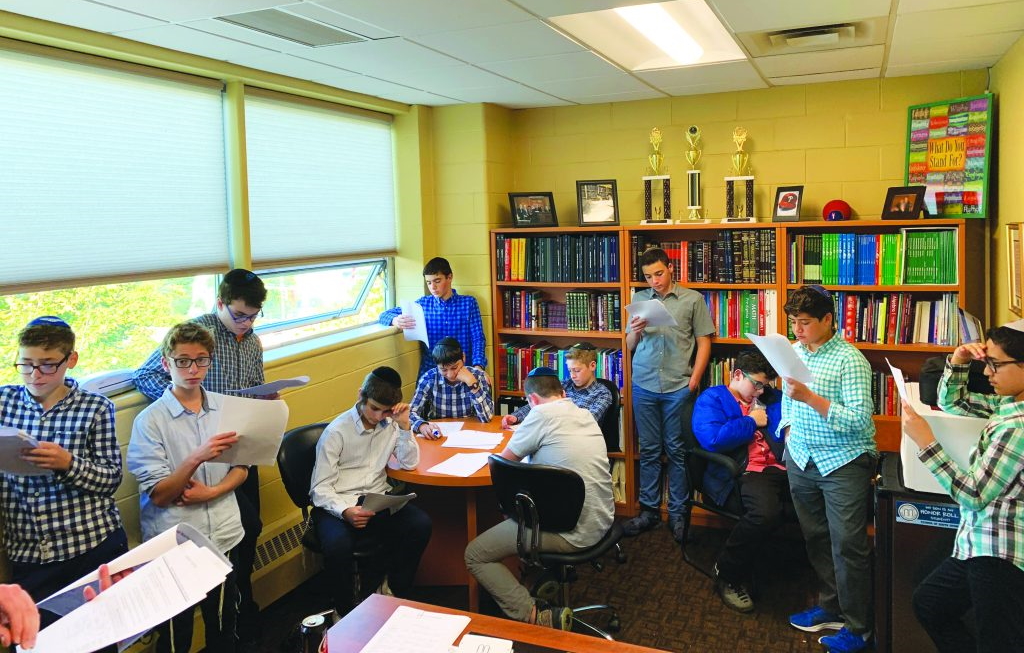New York to Release Revised Regulations for Private Schools Next Fall

The New York State Board of Regents expects to release updated guidelines next fall for private-school curricula, following meetings with stakeholders last December on the contentious issue.
“Our goal is to develop a sensitive, respectful and effective process to ensure children are receiving the education to which they are entitled within diverse school settings across New York State,” Board of Regents Chancellor Lester Young said in a statement accompanying the announcement, following a Board of Regents meeting Monday. “We have an obligation to make sure every child is prepared to be successful in life and be active participants in society, no matter where they attend school.”
Following complaints by a handful of former yeshiva students that they did not receive an adequate secular education, the state published guidelines in November 2018 that provided detailed instructions for how private schools must fulfill the longstanding legal requirement that they provide an education “substantially equivalent” with that of public schools. These regulations mandated specific courses, and the minimum number of hours to be dedicated to the study of each. The time requirements would have obligated yeshivas, which have secular studies four days a week, to teach secular studies an average of more than four hours per day in seventh and eighth grades, and an average of more than three hours per day in high school.
The guidelines were initially struck down by a judge on procedural grounds in April 2019, then re-released under proper procedures in July. But during the subsequent 60-day public-comment period, 140,000 comments were submitted to the Board, at least 120,000 of which opposed the proposed rules. The Board of Regents said it would withdraw the guidelines and engage with stakeholders before releasing new rules.
The engagement was conducted last December via a series of Zoom meetings with parents, students, alumni and administrators of private schools, as well as public-school leaders, from across the state. The state Education Department on Monday released a report on the meetings.
School representatives who participated in the meetings agreed that the unique needs of their communities should be considered when creating education policy. For example, the report notes, “Nonpublic school representatives recommended that policies not impose on an individual school’s beliefs and values, such as those about gender and the theory of evolution.” Educators, “mainly from religious schools,” also “discussed how parents play a large role in schools’ decision-making processes,” and that “because parents pay tuition for their children to attend nonpublic schools, these schools must meet parents’ expectations in order to retain their students.” One religious-school educator argued that that “the responsibility of holding schools accountable should fall primarily on the parents, rather than the government or the state.”

The Board of Regents said Monday it will deliberate in the coming months, and that new regulations “tentatively” will be issued in the fall for public comment.
In statements to Hamodia on Monday, yeshiva advocates reiterated their calls for independence.
“We heard some positive things today that give us reason for cautious optimism, but we still have a long way to go,” said Rabbi Chaim Dovid Zwiebel, executive vice president of Agudath Israel and a board member of Parents for Educational and and Religious Liberty in Schools (PEARLS). “For those who treasure the autonomy of yeshivas and other religious schools, the stakes could not be higher.”
“On the legal front, ‘substantially equivalent’ is an abstract term, and state leaders can’t redefine it in a consequential way just because people on social media demand so,” said Yossi Gestetner, executive director of the Orthodox Jewish Public Affairs Council (OJPAC), which has been active in publicizing yeshiva-related data. “As for merit, critics call yeshiva education ‘religious studies’ to suggest that the day is spent only on prayers and stories, but the curriculum is Judaic studies, which encompass many of the core topics seen in public school. As for outcome, the employment level among Hasidic men is approximately the same as men in New York overall. Families and yeshivas that need to adjust their educational program should do so of their own accord, not by force from bureaucrats who have little idea what a day in yeshiva looks like.”
Under the previously proposed guidelines, the responsibility for ensuring that the rules are kept would fall to the local school authority, which, in New York City, would be the schools chancellor, appointed by the mayor. The question of whether the city will enforce state guidelines or allow yeshivas to remain independent has become an important issue in the 2021 mayoral race. Andrew Yang, a leading candidate who has dominated the endorsement battle in the Orthodox Jewish community, has taken a strong position in favor of yeshiva independence. Eric Adams, a leading candidate who had long-standing ties in the Orthodox community, has thus far not received any endorsements from community leaders, possibly in part to his having taken a position more in favor of enforcement. Adams has subsequently visited and praised yeshivas, and taken a more pro-yeshiva position.
—
rborchardt@hamodia.com
To Read The Full Story
Are you already a subscriber?
Click "Sign In" to log in!

Become a Web Subscriber
Click “Subscribe” below to begin the process of becoming a new subscriber.

Become a Print + Web Subscriber
Click “Subscribe” below to begin the process of becoming a new subscriber.

Renew Print + Web Subscription
Click “Renew Subscription” below to begin the process of renewing your subscription.







